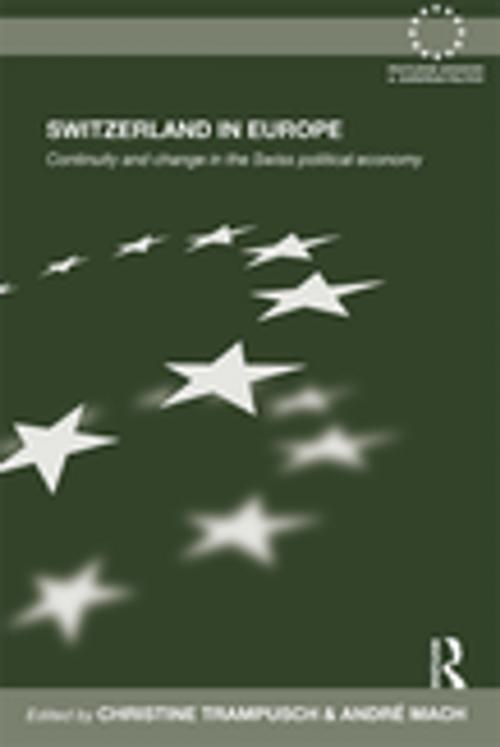Switzerland in Europe
Continuity and Change in the Swiss Political Economy
Nonfiction, Social & Cultural Studies, Political Science, Politics, Economic Policy| Author: | ISBN: | 9781136815010 | |
| Publisher: | Taylor and Francis | Publication: | March 14, 2011 |
| Imprint: | Routledge | Language: | English |
| Author: | |
| ISBN: | 9781136815010 |
| Publisher: | Taylor and Francis |
| Publication: | March 14, 2011 |
| Imprint: | Routledge |
| Language: | English |
While Switzerland is well known for its specific political institutions, such as direct democracy, federalism and neutrality, or for its banking secrecy, its socio-economic institutions, which decisively contributed to its prosperity, remain relatively unexplored.
This book gives the first systematic overview of Swiss political economy in comparative perspectives. Divided into four sections, the first offers an introduction to Swiss political economy, its major political institutions and Switzerland’ relationship to the EU. The remaining three sections provide case studies on different parts of the political economy and policy fields. The case studies with in part two and three focus on economic actors, major socio-economic institutions addressing corporate governance, finance, labour market, skills and training. Part four addresses social and economic policies, including welfare, liberalization and economic regulatory reforms. Switzerland in Europe also offers several insights into important literature in comparative political economy: the varieties of capitalism, small states, institutional change and patterns of democracy.
This will be of interest students and scholars of comparative politics, political economy, Switzerland, small states and European Studies.
While Switzerland is well known for its specific political institutions, such as direct democracy, federalism and neutrality, or for its banking secrecy, its socio-economic institutions, which decisively contributed to its prosperity, remain relatively unexplored.
This book gives the first systematic overview of Swiss political economy in comparative perspectives. Divided into four sections, the first offers an introduction to Swiss political economy, its major political institutions and Switzerland’ relationship to the EU. The remaining three sections provide case studies on different parts of the political economy and policy fields. The case studies with in part two and three focus on economic actors, major socio-economic institutions addressing corporate governance, finance, labour market, skills and training. Part four addresses social and economic policies, including welfare, liberalization and economic regulatory reforms. Switzerland in Europe also offers several insights into important literature in comparative political economy: the varieties of capitalism, small states, institutional change and patterns of democracy.
This will be of interest students and scholars of comparative politics, political economy, Switzerland, small states and European Studies.















